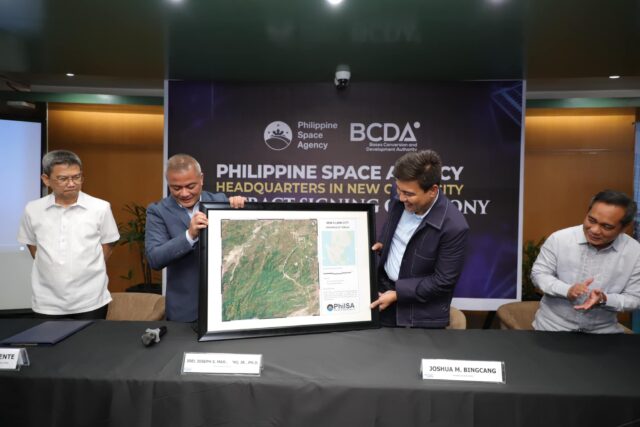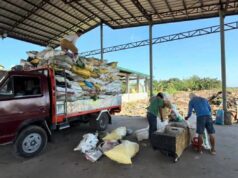CLARK FREEPORT – Add another first to the Philippines’ first green, smart, sustainable, and disaster-resilient metropolis — New Clark City, the official home of the country’s space center.
The Philippine Space Agency (PhilSA) signed with the Bases Conversion and Development Authority a 50-year contract for the lease of a hectare of land in NCC which will become its home.
“What we will put in Clark is the country’s best foot forward in space economy…This is the first of many things to come. With this partnership, imagine what we can accomplish in the next five, 10 years or more,” said PhilSA director general Dr. Joel Joseph Marciano, Jr.
Enthused BCDA president and CEO Engr. Joshua Bingcang: “Once built, we are confident that the Philippines will have one of the most modern space centers in Southeast Asia; and what better place for this to happen than in New Clark City, the first smart and disaster-resilient city in the Philippines.”

Joining Marciano and Bingcang at the signing of the contract of lease during at the BCDA office in Bonifacio Global City, Taguig on Aug. 29 were PhilSA deputy director general for space operations, infrastructure and industry Denis Villorente, BCDA OIC for conversion and development Engr. Richard Cepe, and PhilSA deputy director general for space science and technology Dr. Gay Jane Perez
Created under RA 11363 (Philippine Space Act), PhilSA is the central government agency addressing all national issues and activities related to space science and technology and applications (SSTA).
According to its website, the PhilSA has implemented SSTA initiatives such as the Philippine Scientific Earth Observation Microsatellite Program (PHL- Microsat) and its successor, the Space Technology and Applications Mastery, Innovation and Advancement Program (STAMINA4Space) which have led to the development, launch, operation and utilization of the country’s own small satellites for scientific Earth observation, DIWATA-1 launched in 2016, followed by DIWATA-2 in 2018 and MAYA-1, the country’s first nanosatellite, also launched in 2018.
DIWATA and MAYA provide a blueprint that enable further innovation, expansion and localization of small satellites. Punto News Team/BCDA Public Affairs





